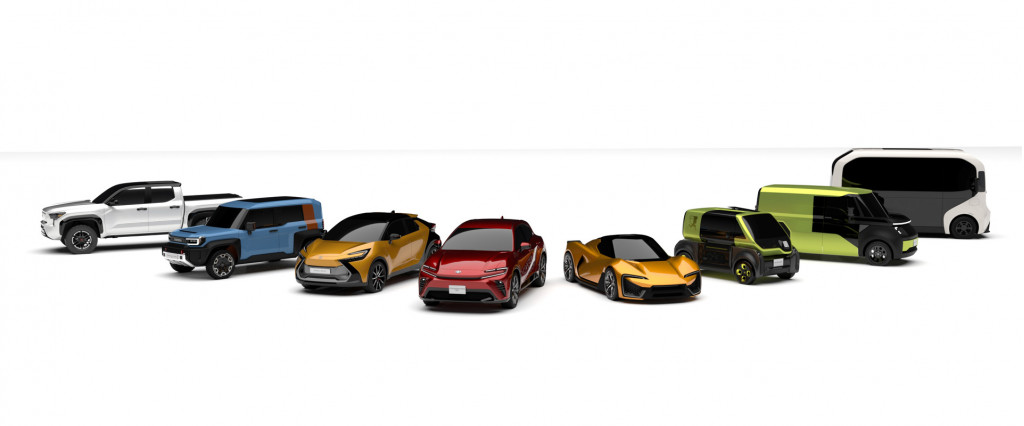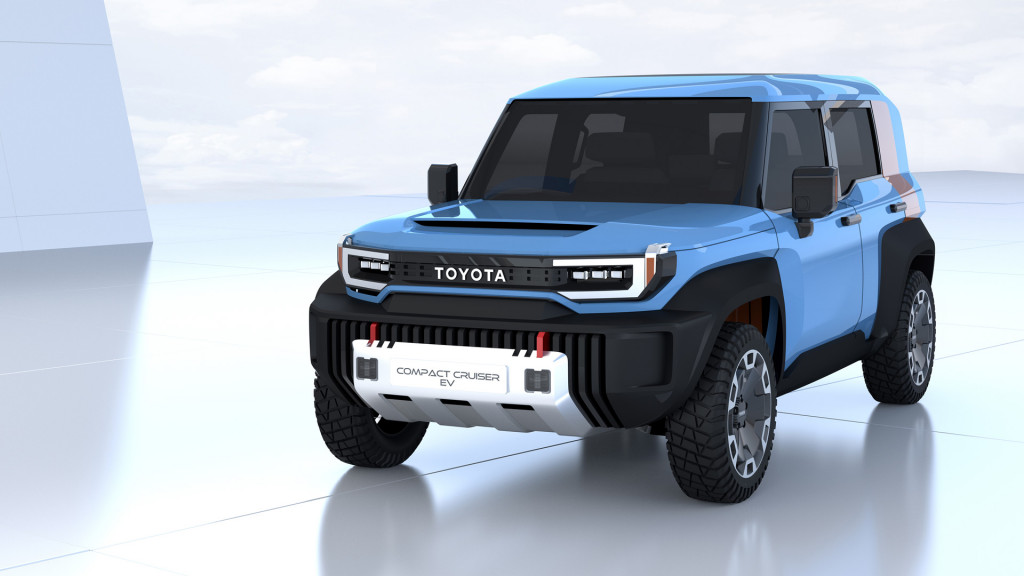Earlier this week, Toyota announced a $5.6 billion investment plan to produce batteries for fully electric vehicles in Japan and the U.S.
That includes a $2.5 billion expansion of a North Carolina battery factory barely under construction, adding capacity for EV batteries and very likely suggesting a future commitment to U.S.-built electric vehicles.
While earlier in the week, Toyota only named “Toyota plants and property,” as being part of the initial investment on the Japan side, a report from Automotive News adds much more detail. It suggests that Toyota does indeed see EVs as a profound, permanent shift.

Planned Toyota electric vehicle lineup
Toyota has said that it plans 30 new EVs globally by 2030, but it’s held its cards close on what kind of sales volume that means. In the U.S., where its only battery electric model is the BZ4X crossover, it’s projected that 85% of vehicles by the end of the decade will still have an engine under the hood.
According to AN, the company’s Shimoyama engine plant and Myochi powertrain factory will get upgrades for battery production, with that production managed by Prime Planet Energy & Solutions, which is Toyota’s joint venture with Panasonic.
Rather than build new joint-venture plants, as GM is doing in its Ultium Cells LLC venture with LG, Toyota is following an approach that’s ultimately more stable to the workforce.

Toyota Cruiser EV
The report also sums that up until May, Toyota’s global EV capacity was only 6 gigawatt-hours—and that included hybrids. But Toyota now plans 280 gigawatt-hours by the end of the decade, and with this round of expanded global EV battery capacity Toyota will have access to 46 gigawatt-hours once the upgrades are complete.
Toyota’s approach in Japan sounds a bit like what Volkswagen is doing in its home Germany. VW is repurposing its Salzgitter engine plant for pilot battery cell production and battery activities, while it’s building an adjacent 40-gigawatt-hour PowerCo battery factory with more jobs than the original plant. That’s just one of at least six VW factories in Europe and a total capacity of 240 gigawatt-hours by 2030, so it’s at a different level of commitment to EVs, however.
Although Toyota’s commitment remains a fraction of that, its shift of engine plants to battery plants also suggests the Japanese automaker will start moving more rapidly with the evolution of the industry.













